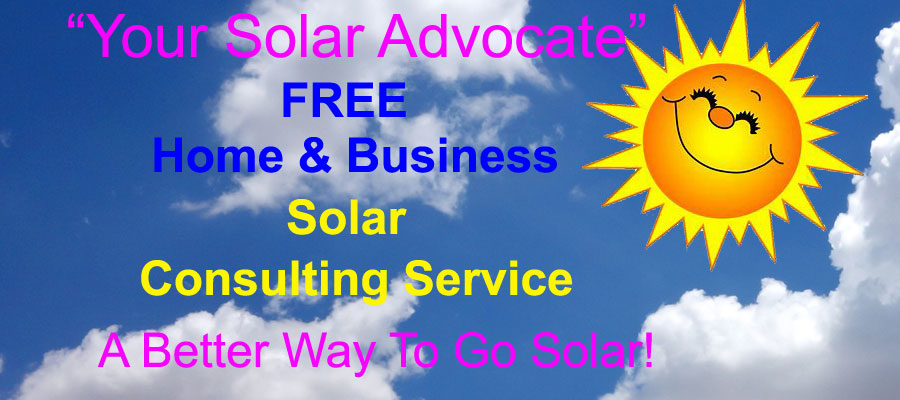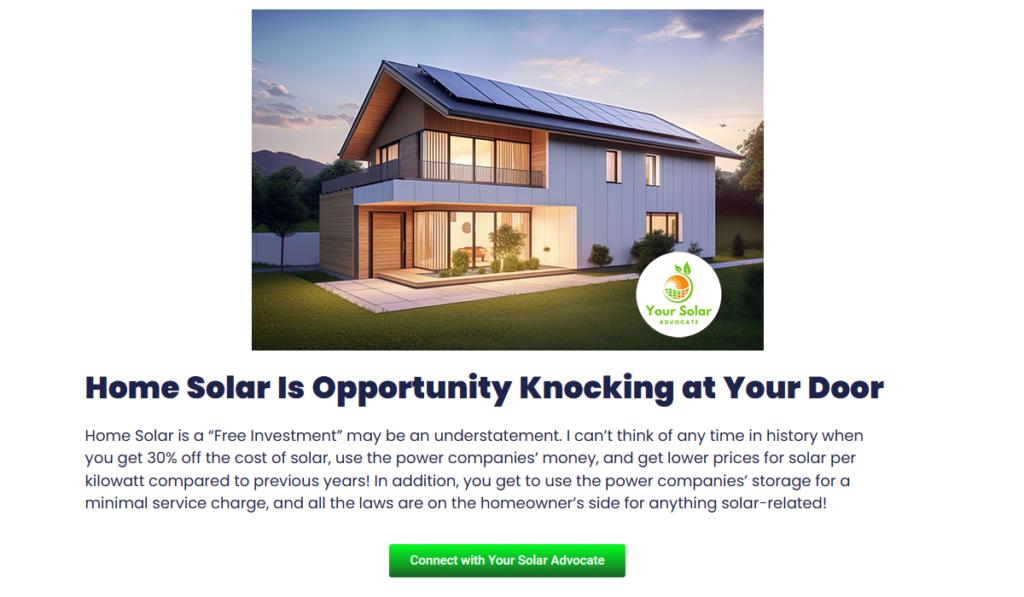Why Are Floridians Slow To Go Solar?

Why Are Floridians Slow To Go Solar? The answer to the question is the way solar is being marketed. There’s no dominant industry leaders, just a bunch thrown together ragtag get it sold companies.
The approach that these companies use across the board is based on the car dealership model. The solar industry is predatory, looking to sign anybody up that has a pulse. So I know predatory sounds harsh but I witnessed predatory behavior first hand. I consider taking advantage of people’s lack of knowledge as predatory behavior but many salespeople did not. I saw some people making money as they’ve never had before in their lifetime but many lied to accomplish that.
Customer Experience
The following is an example of how the solar industry presents solar to potential customers. The solar salesperson follows up on a lead provided by the solar company. The salesperson then sets an appointment for about an hour but it easily can lead to two to three hours.
So a homeowner has a sit down with a sales rep for a couple of hours just to be subject to a high-pressure close. The bottom line is it’s not a very pleasurable experience for the customer, lots of pressure.
Then there are the shoppers who sit down with 2 or 3 different companies but it doesn’t matter because they have the same experience with all three companies. Potential buyers do have great instincts, and because of that, the majority don’t go any further. They can sense there’s something not quite right but not really sure what it is? They want solar but they can’t justify a twenty-year finance plan. But now there’s a better way to go solar and pay wholesale for everything.
Companies are Closing and Re-Opening Under Different Names
Then there’s the additional fact that two-year-old companies that are claiming a twenty-five-year warranty. For a fact, many of these companies have opened and closed, then re-opened under a different name. Just another reason Why Floridians are Slow to Go Solar?
Less Than 2% of Homes In Florida are Solar Powered
As it stands in the first three years of home solar in Florida, less than 2% of homes are solar-powered. I do believe the reason for such low participation in Florida is because of the business model the solar companies use. The solar industry business model creates far too many additional costs for the consumer.
It’s obvious something has to give for more homeowners to go solar in Florida. Interestingly enough I observed politics does not play a role as to whether people choose to go solar or not. Regardless of a customer’s politics, they all love the idea of solar and seem to believe in it. Floridians want solar they just want a return on investment, not a wash.
Same Equipment
Now there’s a way to go solar and have the exact same equipment and installation and save $6000 to $10,000 by hiring a solar advocate. “Your Solar Advocate” is a solar consulting firm that walks you through every step of the entire process. Hiring a solar advocate is a better way to go solar.
The business model that solar companies use is a deterrent for people going solar, it increases costs to dramatically. This is the primary reason Why Floridians are Slow to Go Solar. I do believe the Idea of solar advocacy in 2020 could be a game-changer for the solar industry.
Complete System Wholesale Cost Breakdown for Florida
The smallest system that I or any installer would recommend is a 7K system. That’s 30 Panels give or take depending on the wattage. Figure the panels cost $240 each that’s $8,000 adding in shipping. Then add in the cost of an inverter which is about $1,200. That’s a total of $9,200. Permits, Installation, and miscellaneous costs at $3,100. Your total cost is $12,300 and I sold this system for $24,500 to $26,500. This is using the exact same quality panels and inverter all the solar companies use.
Now deduct your ITC (Solar Tax Credit) of (26%) $3,200 from $12,200 and your total out of pocket cost is $9,000, but the cost is a minimum of $24,000 if you hire a company to do it. Then deduct your tax credit of $6,200 from 24,000 and your net cost is $17,800. So that is a factual savings of $8,800 on a 7K system.
This comparison is based on a top-quality system with the very best manufactured state of the art solar panels and String inverter.
More Questions Than Answers
How do I know what to buy or where to go to buy the materials? How do I find a solar installer? Does the installer pull permits? How do I know what size system to buy? Should I buy a bigger system than I need or a smaller system than I need?


